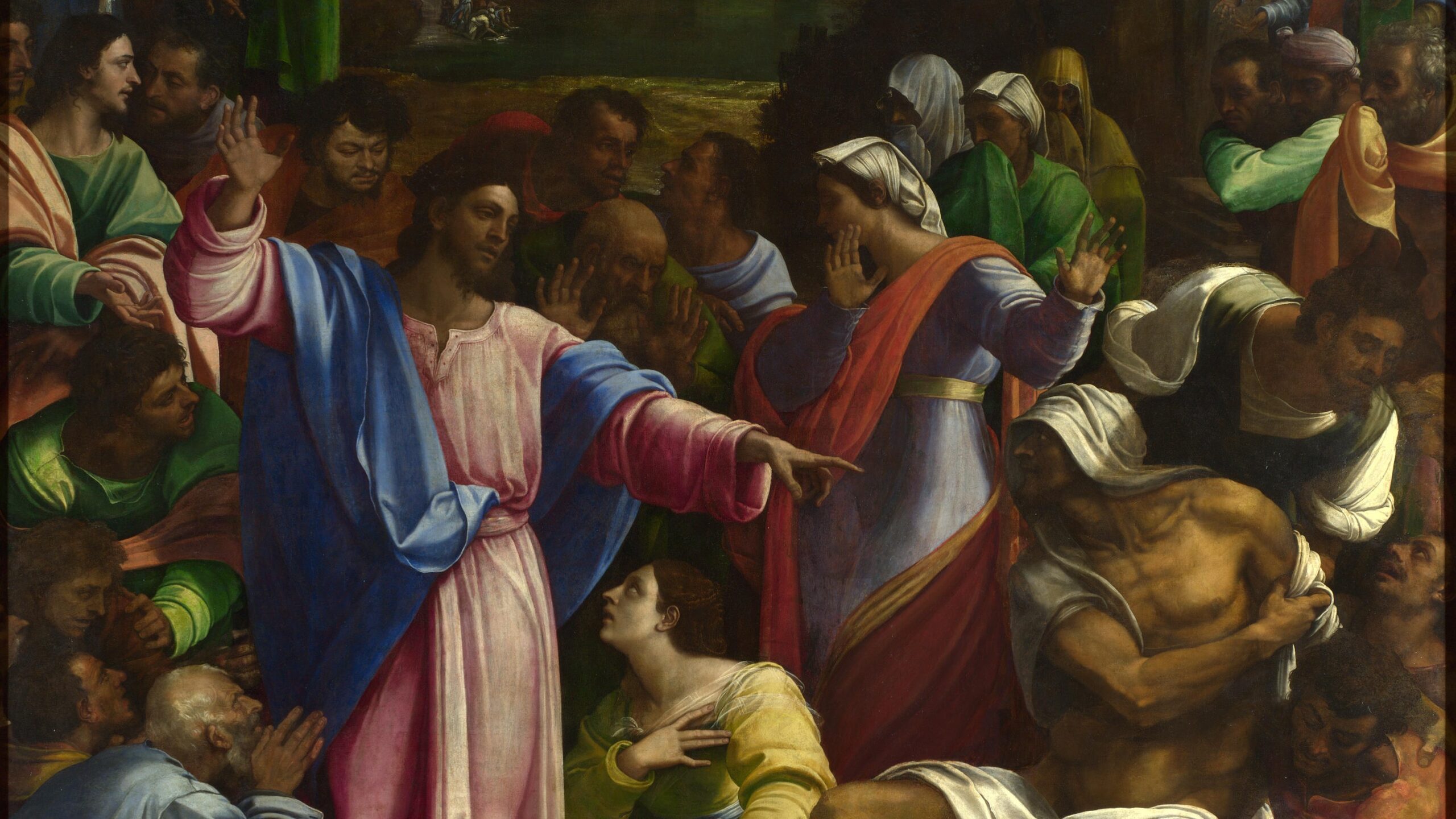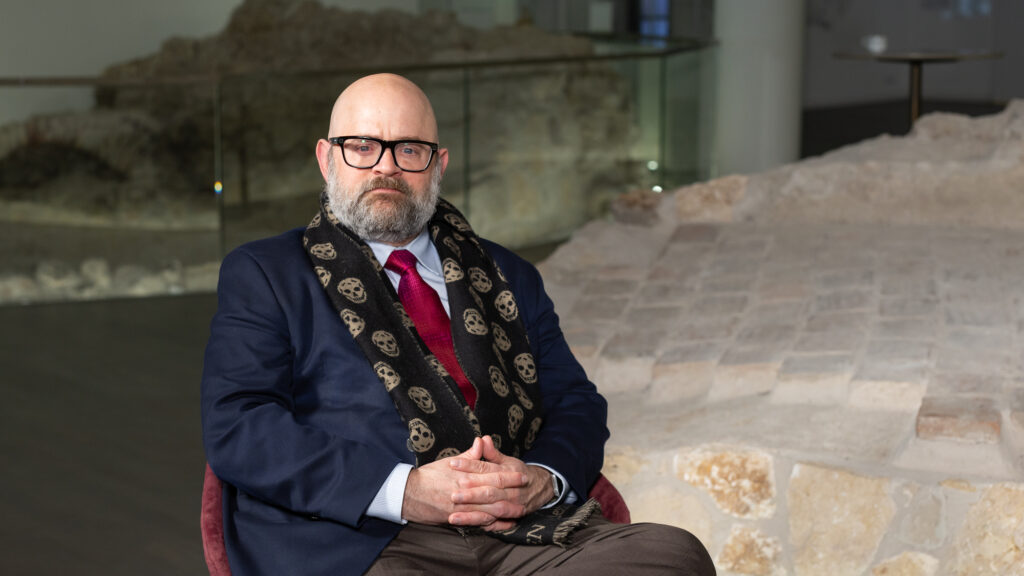On All Saints’ Day and All Souls’ Day, the Catholic world celebrates the glorified and suffering Church, while the Protestant tradition does not observe these holidays, and non-believers, along with people of other faiths, simply remember their deceased loved ones.
The occasion has both Christian and non-Christian roots, and each person decides individually how to take part in it—how they wish to commemorate their departed relatives. Yet this is only the outward aspect of remembering the dead. What matters more is the substance: the burning personal question of where we ourselves will be when, in the distant future, we are the ones remembered—and what reality will surround us then.
The search for the nature of death and the reality beyond it is as old as humanity, with scientific theories, myths, religions, and beliefs all offering various answers. Yet there is an iron law that no one can break: from the state of biological death—that is, after brain death occurs and life functions can no longer be restored (according to rabbinic tradition, a person who has been dead for four days and begun to decompose is truly dead)—no human has ever returned. In other words, no scientist, researcher, guru, or religious leader has empirical experience of ultimate reality, and no one possesses an answer supported by irrefutable evidence regarding existence or non-existence after biological death.
‘No one possesses an answer supported by irrefutable evidence regarding existence or non-existence after biological death’
That is, the answer lies with the Creator himself—if there is a Creator of the world. If there is not, inertia drives existence forward, and the value of human existence is the experience of the present itself.
If there is a Creator, then the question is who He really is, who has given authentic information about Him, and—if we know all this—the second essential question is what He tells us about our own human destiny, primarily about the meaning of human existence and about passing away.
In Christian culture, the primary source of divine explanations and answers is the only common standard that all Christian denominations, groups, and faiths accept as divinely authoritative—the Bible, whose authors believed that the sacred texts had not originated from human intent, but from divine revelation. This is not obligatory to accept—but then what remains as a foundation? So what, then, are the basic principles of Christian faith? And what do we do with the fact that both the Old Testament authors, Jesus, and the apostles considered these writings to be divinely inspired communications, and several of them maintained this even at the cost of their lives?
Jesus Is the Key Figure
No one has come back from a state of biological death, as we wrote earlier—which is a true statement with one exception. The Christian faith rests on a prominent basic thesis, which, like the cornerstone of a building, determines the stability or instability of the house: the Son of God, the Christ, was incarnated in a Jewish man from Nazareth, Jesus—preached the way to salvation, performed signs and wonders, was captured and killed—but on the third day He rose from the dead, and after being taken up to heaven, He lives forever in a resurrected, transformed human body.
This is the gospel.
If it is not true, if it did not happen this way, then the faith of every Christian, the followers of Christ, is in vain—writes the apostle Paul—because at the latest, at the moment of their death, they will be confronted with the fact that they believed in a myth that had nothing to do with the hard and painful reality.
‘On the third day He rose from the dead, and after being taken up to heaven, He lives forever in a resurrected, transformed human body’
But if everything happened this way, and the stories described in the Gospels were authentically written by the eyewitness disciples, then such a person told everyone about the reality after death—who personally experienced it and from which he actually returned. In this case, this is empirical testimony, sealed with evidence, and not taking it into account is a huge negligence on the part of all transient people. After all, existence is at stake here—our destiny determined in eternity.
The case of Jesus is therefore special, because his teaching stands or falls precisely on whether he was truly resurrected. For he said that he was the Son of God—which is why he was executed for the blasphemous claim—and foretold that he would be killed, but that on the third day—from the state of decomposition of the body—he would return in a resurrected body.
The birth of the Church is linked to this very fact: a few weeks after the Master’s execution, the scattered, faithless, and disappointed disciples, risking their own condemnation, publicly proclaimed that they had seen the resurrected Jesus with their own eyes, and that through faith in Him, every person can gain their personal salvation and bodily resurrection to meet their Creator.
In What Body Will We Be Resurrected?
The first Christians became Christians because they believed in the resurrected Jesus—and this is no different today. Whoever believes in the resurrection of Jesus knows that He was the ‘firstfruits’ (1 Cor. 15:23), and according to this pattern all believers in Him will also be resurrected in their time. This is the great hope of Christians.
The Bible therefore states the following about the resurrection:
– Everyone will be resurrected in a body, whether they wish it or not—whoever God has once called into existence will never die again.
– Not only the soul is immortal, but the entire human personality; at the resurrection all components of man—spirit, soul and body—will be reunited, only in a new, incorruptible form.
– There is no reincarnation, only incarnation—Jesus drew attention to the fact that life is unique and unrepeatable—that is, we will be resurrected in the body in which we live, only in its best possible form.
‘At the resurrection all components of man—spirit, soul and body—will be reunited, only in a new, incorruptible form’
– Everyone experiences the first, physical death sooner or later—but not necessarily the ‘second’ death—the complete separation of the entire personality from God. Avoiding this is in man’s best interest.
– The decisive question is therefore not the question of existence or non-existence, but where the place of the individual’s eternal existence will be: in heaven or hell (in the presence of God or outside it).
– Man cannot be resurrected by his own willpower, nor can he ‘earn’ his participation in it by good deeds; it is given by God’s grace.
– The right to resurrection is acquired on the basis of justice: someone has to pay the price of sin (death), so if man wants to be resurrected, he must accept that the Savior paid this price in his place, died on the cross for our sins in our place. Resurrection can be received from Jesus; we can only be resurrected with Him, not without Him.
– The same body will be resurrected as the one that died, but the resurrected body will be a heavenly body. Jesus’ example shows—his resurrected body was also recognizable as his, it could be touched, he spoke the same way, he ate fish—but he could pass through a closed door when he appeared to his disciples, he could bridge physical distances in seconds when he appeared in Galilee after Jerusalem, and so on. According to Christian theology, a body nourished not by blood but by spirit is no longer bound to time and space.
‘Resurrection can be received from Jesus; we can only be resurrected with Him, not without Him’
– According to the description of the apostle Paul, the resurrected body will differ from the earthly body as a wheat plant does from a sown seed—the small seed rots in the ground, but from it a large, mature plant sprouts, which, although it comes from it, is incomparably different in appearance, essentially different in nature. Paul continues—the corruptible body will be changed into an incorruptible (eternal), the vulnerable body into a glorious, the weak body into a body full of power, never tiring. Just as in our earthly body we bore the image of the first man, Adam, so in our resurrected body we will bear the image of the second man, the Lord—we will have the same heavenly body as in which Jesus Christ appeared to his disciples for 40 days after his resurrection, and with which God took him up to heaven.
On the ‘day of the dead’ it is important to say—according to the message of the Gospel—death will not have the last word. ‘He who believes in Christ has eternal life, he has passed from death to life’—says the biblical promise. Following Jesus is therefore not a religion, but a way of salvation from death.
Related articles:






